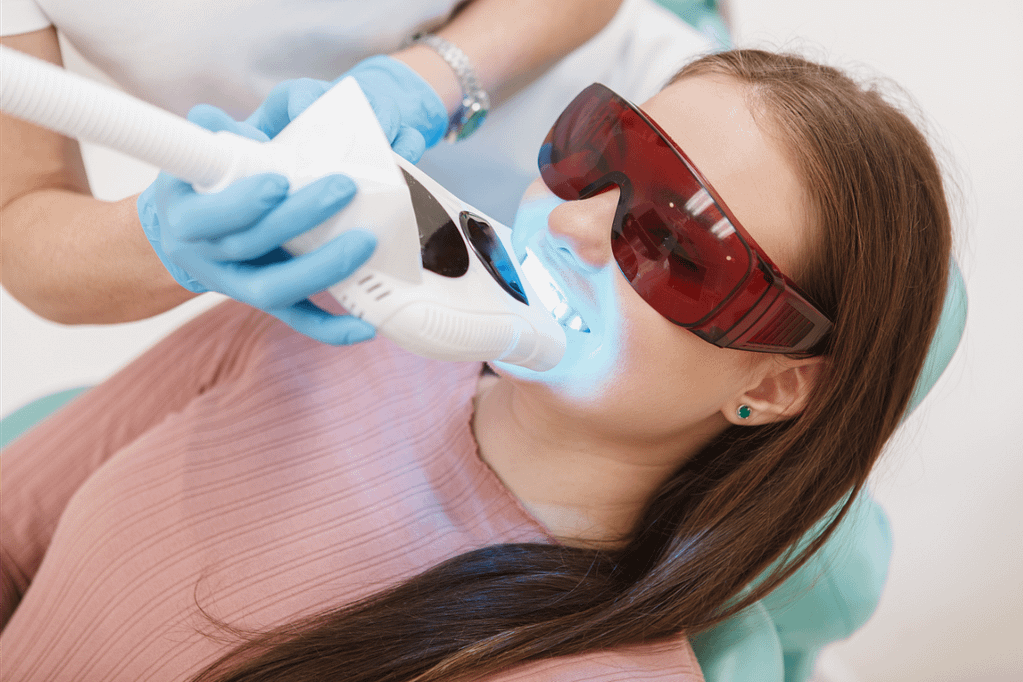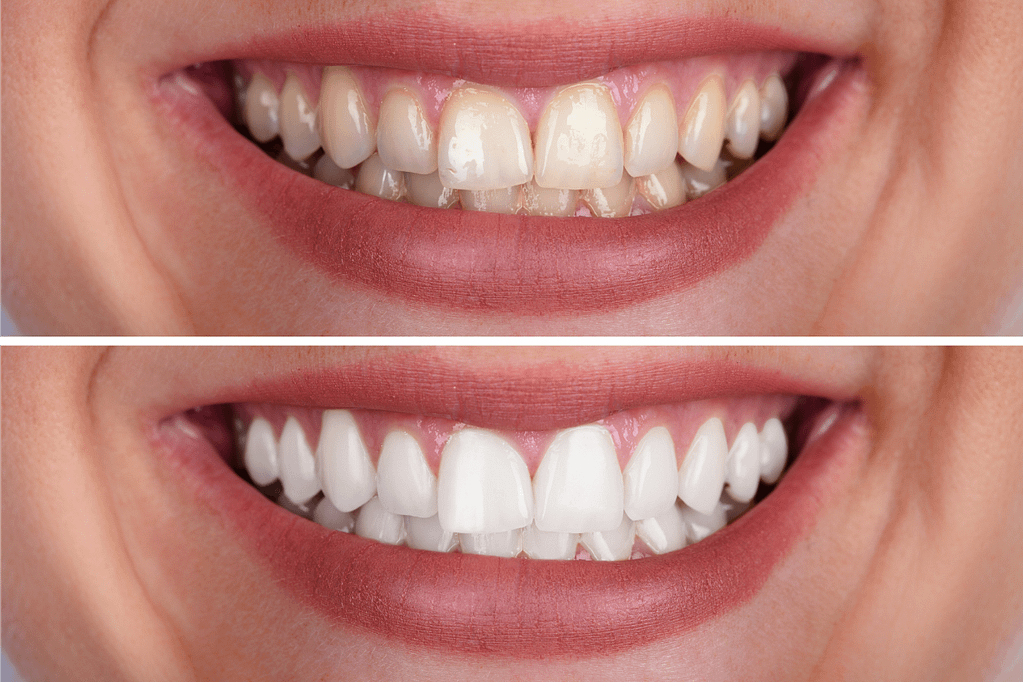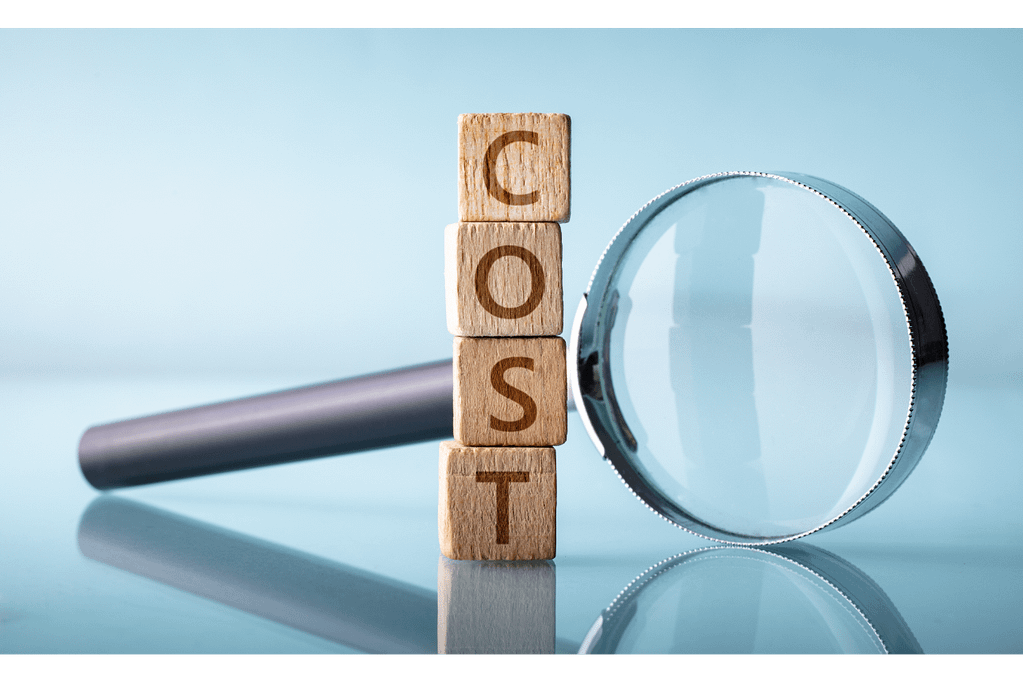
Here’s a fact: While 10% of Brits aged 18-24 have already undergone teeth whitening, a further 40% say that they would undergo cosmetic bleaching but are confused about which teeth whitening treatment or product to choose.
There is indeed a great deal of confusion surrounding these procedures in terms of teeth whitening types, costs and results. So, to unwrap some of that uncertainty, I’m going to attempt to break down all you need to know about teeth whitening treatment so you have a better idea of which is best for you.
So let’s get started…
Firstly, teeth whitening types

There are hundreds of products on the market designed to give you a whiter, brighter smile so it’s understandable why someone considering cosmetic teeth whitening for the first time would feel confused.
The good news is whitening products can be broken down into two main categories:
- Over-the-counter products, and
- Professional teeth whitening
As the titles suggest, over-the-counter or OTC’s, are sold directly to the consumer from places like supermarkets, pharmacies and online stores, while professional teeth whitening treatment is provided by your dentist only.
But here’s the rub…
Within these two categories, there are many different products at varying price points all vying for your attention.
For example:
OTC products consist of anything from whitening toothpaste and pens to whitening strips, powders and L.E.D devices. These are the typical items you’ll see in your local pharmacy.
On the contrary, professional teeth whitening treatments are supplied by your dentist only and consist of:
- Cosmetic whitening procedures that are carried out at the dental clinic, or
- Take-home treatments that incorporate custom-made trays and bleaching gels supplied by your dentist.
So to recap, professional teeth whitening treatment is dentist-led and over-the-counter whitening products are not.
So, does this matter?
Well, yes, and no!
You see, not all teeth whitening treatments are created equal.
To explain further we need to talk about treatment expectations, and indeed the laws surrounding these products.
Let’s talk about teeth whitening results

The key difference between professional teeth whitening treatment and most over-the-counter ‘store-bought’ products is as follows:
“Any teeth whitening treatment supplied by your dentist is legally allowed to contain higher concentrations of bleaching gel.”
Why is this important and what does it mean for you?
Essentially, any cosmetic whitening product supplied by your dentist is:
- More likely to work, and
- Will whiten teeth faster.
Conversely, there’s no guarantee that you’ll see results using over-the-counter products for reasons we’ll go into in a while.
But for now, know that professional teeth whitening works in most cases.
When it comes to office-based teeth whitening treatments, particularly those that involve peroxide bleaching gel and an activating light, patients can notice a difference in their smile within a single one-hour session.
Alternatively, over-the-counter products will vary greatly in both results and timescale depending upon product type and your location of purchase.
Let me explain…
In the UK, the law states that any store-bought whitening product cannot contain any more than 0.1% hydrogen peroxide. This may mean that products bought over the counter in the UK are unlikely to have any noticeable effect on teeth because the bleaching agent quota is so low.
Whereas in Australia and the US, legal concentrations of bleaching agents are allowed to be considerably higher (up to six per cent in Australia and far more in the US). Therefore, consumers buying in these countries may see better results when using products like whitening strips or gels.
Even then, results can differ from product to product. Most whitening toothpastes, for example, contain an abrasive agent such as charcoal, hydrated silica or aluminium particles rather than a bleaching gel. As a result, they are designed to shift extrinsic (surface) staining at best but won’t deliver that deep-down whiteness.
Alternatively, treatments like teeth whitening strips and light-activated whitening kits are thought to perform better, providing a greater degree of whiteness. However, results tend to show in weeks not days.
Inevitably, however, you look at it and wherever you buy the product from, over-the-counter teeth whitening treatment is unlikely to deliver the same whitening efficiency as professional dentist-led treatments.
So, anyone looking to whiten teeth for an upcoming event and wanting definitive and speedy results might be better off with teeth whitening treatment carried out by their local dentist.
Alternatively, if someone is happy to whiten their teeth over a longer period, they may be better off opting for a product like a store-bought whitening kit or whitening strips.
But what about teeth whitening costs?

Naturally, because professional teeth whitening services involve dental intervention they’re generally more costly than store-bought products. However, the trade-off is speedier and proven results.
UK patients, for example, can expect to pay somewhere between £500 and £1000 for laser teeth whitening treatment while customised take-home trays can be anything from £150 – £500.
On the contrary, store-bought whitening products can range from a few pounds for whitening toothpaste through to several hundred pounds for an L.E.D whitening device, and anything in between.
So, while OTCs are cheaper than professional teeth whitening treatments, there are no guarantees that they will provide satisfactory results.
So does teeth whitening treatment work?

In a word, yes, but patients/consumers should take into account any number of variables that can affect the degree of success. These include:
- The type of product/treatment – Dentist-led whitening vs store-bought whitening.
- Location of purchase – Europe and the UK have considerably lower restrictions on bleaching levels than the rest of the world.
- The degree of staining or discolouration – Extrinsic (surface) vs intrinsic (ingrained) staining.
- Genetics – Some patients genetically have darker teeth than others therefore whitening may be more effective on some patients than on others.
Inevitably, what works for one person, might not be as successful for someone else, so this is always something to consider when looking to brighten up your smile.
Teeth whitening treatments – the takeaway
Cosmetic teeth whitening can be confusing but hopefully, I’ve unravelled the mysteries surrounding this popular treatment.
Ultimately, if you want to achieve a brighter, whiter smile, it is possible provided you find the right product or service that takes into account the variables listed above.
If your preferred choice is an over-the-counter teeth whitening product, take care to avoid misuse. On the contrary, with a dentist-led whitening treatment, there’s no such danger.
Inevitably, there’s no reason to be ashamed of your smile, and while most people seek out teeth whitening treatment to boost self-confidence, it’s perhaps more important to have healthy teeth and gums. Ultimately a visit to your local dentist will give you the answers, and the results you need. So if you are concerned with any aspect of your smile, get in touch with your local dentist today.